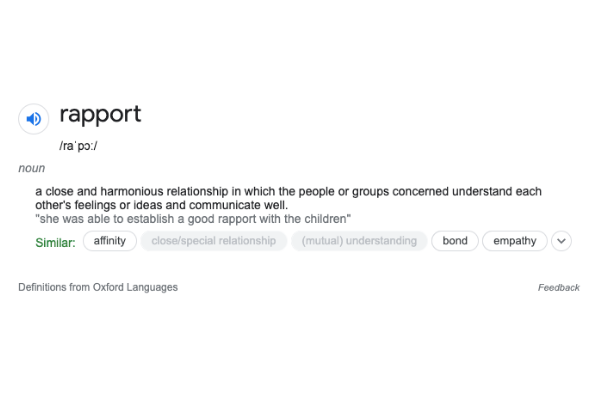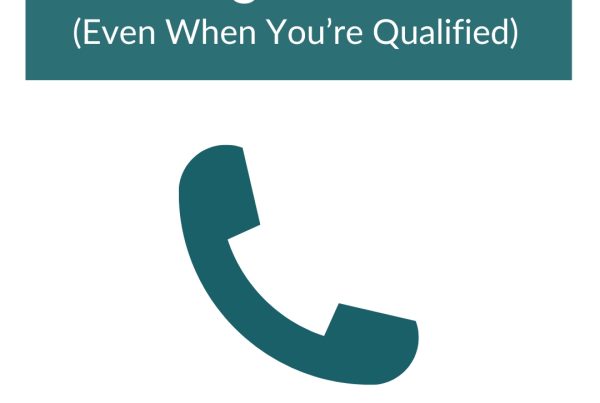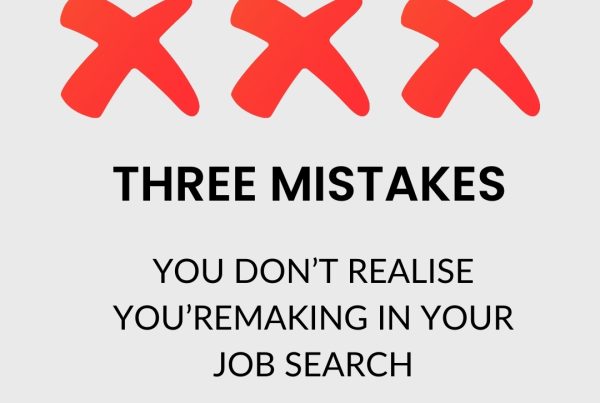Building good rapport
Rapport building is an important skill in both our professional and personal lives. It’s a crucial part of being a recruiter and in many other roles.
Here at PPG, we recognise the importance of this skill and implement it in our training sessions and our day-to-day activities. Understanding that in relationship building, continuously developing your rapport-building skills is a must.
As a skill, it allows you to build relationships faster and improve communication more rapidly. Creating deeper, more personal connections with people. Building a good rapport will make working relationships more effective, and personal relationships stronger.

How to Build a Good Rapport
While there are many methods and training techniques, there are a few key focal points we’ve found to be foolproof.
Read our top four tips on how to build a good rapport below.
1. Show an interest in other people’s lives!
Most people like talking about themselves, and the more genuine interest you show in them, the more likely they are to relax and “open up”. Use this as an opportunity. Ask open-ended questions to encourage discussion and allow people to share more personal, in-depth information.
Once you’ve learned a bit about them, it’s easier to find common ground on an interest or topic you both share. This personal connection to their interests will in turn give you more to talk about. Opening up a back-and-forth dialogue that’s vital in the initial stages of communication.
Remember to just be yourself! Don’t feign interest but instead, find ways to introduce genuine connection. Allow yourself to flow with the conversation to create relatability.
Be friendly and courteous and there’s not much you can do wrong!
2. Build genuine connections
Once you’ve got a dialogue flowing, finding additional common ground will become easier. You’ll be able to relate to more of their interests and, as the cycle continues, you will naturally build a stronger connection.
To truly connect though it is important to be open and vulnerable yourself. Allow yourself to share some of your own experiences and stories too! Communication is a two-way street and no one enjoys a completely one-sided conversation.
Good relationships consist of give-and-take, and active listening is crucial. Create a safe space by showing empathy and demonstrating trust. Listen with intent – when someone feels you are hearing them, they are more likely to listen to you in return.
3. Remember you speak with more than words
Be mindful of what your body language may be conveying. Body posture, eye contact, and facial expressions can all play a massive part in the tone of a conversation.
Be sure that when you are talking to someone that you face them and make comfortable eye contact. Let them know you are not only paying attention but also invested in the conversation.
Avoid resting on your hip, looking at your phone or multitasking, as this type of body language signals disinterest. Even if you think you’re still paying attention, you may be displaying a lack of authentic interest which can be harmful to the relationship.
4. Actually Listen! We all want to be heard.
A lot of the time, most of us are busy thinking of our response in advance, while others are still talking. It’s habitual but one you can shake.
Touch up on those listening skills and ensure you are present and truly listening to the person you are speaking with. Hear and connect with what they are saying rather than formulating what you’ll say next.
Truly listening allows your response, when it is your turn, to be more genuine and most of the time, more relevant too! We all want to be heard so make sure you demonstrate your ability to hear as well as you speak.
Interested in learning more or wanting to put your rapport-building skills into action?
Contact a member of our team today.






